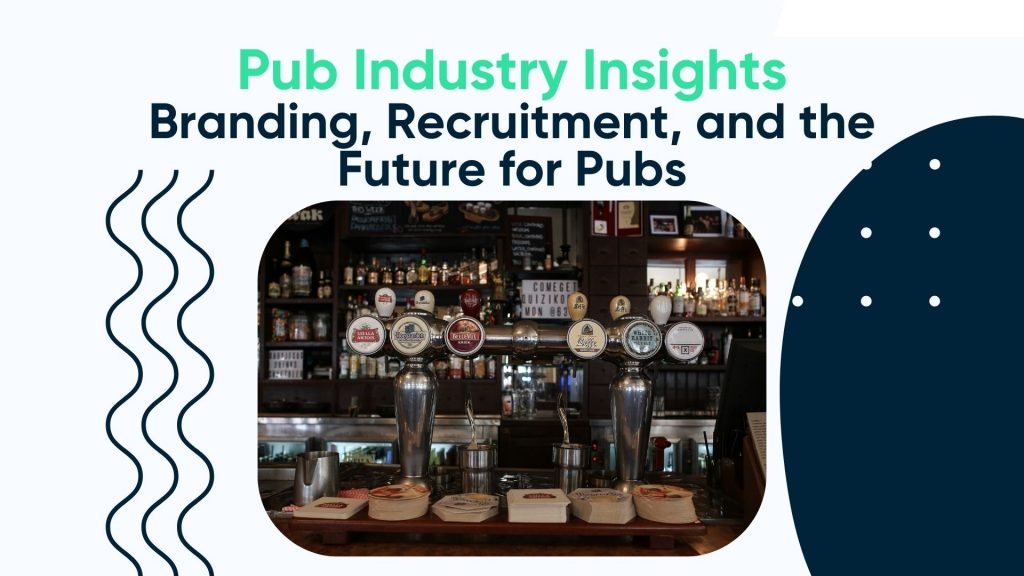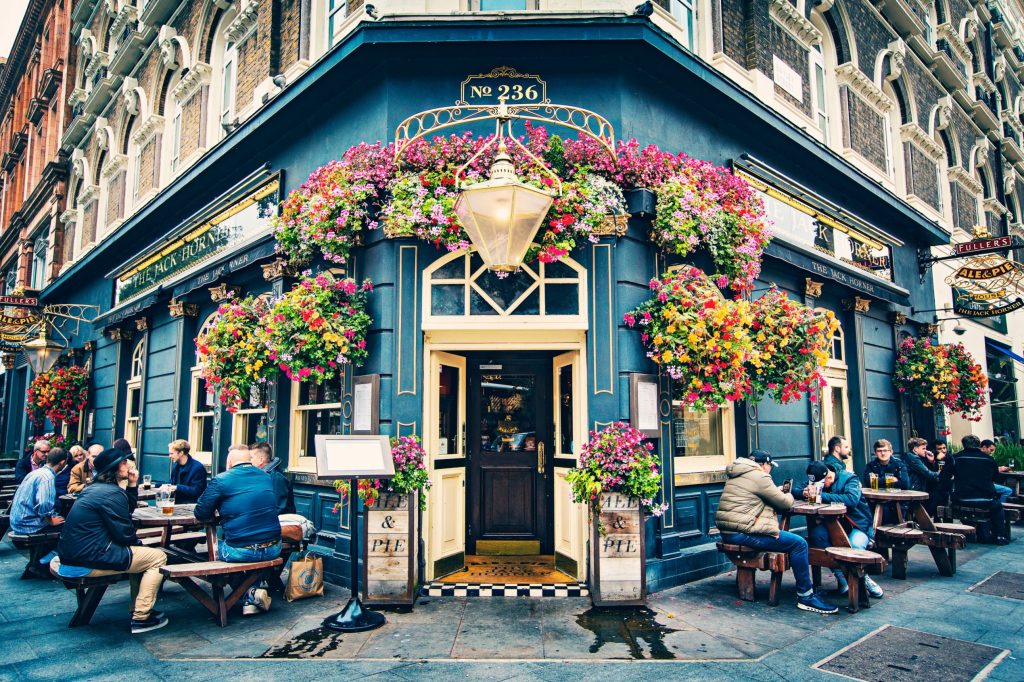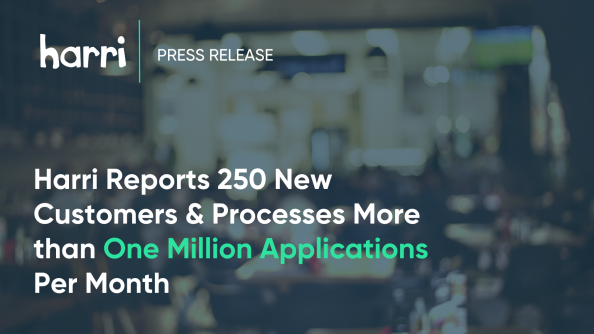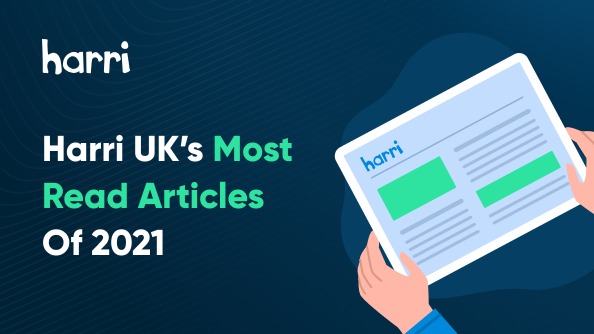Pub Industry Insights from the Propel Excellence in Pub and Retailing Conference

- By Harri Insider Team | May 16, 2025
Energy, innovation, and passion across the pub sector is stronger than ever. At Propel’s recent pub conference, we heard from well known operators such as Fuller’s and JD Wetherspoon about what they’re seeing in the market and how they are continuing to succeed despite difficulties the hospitality industry might be facing.
The big themes of the day’s talks included experience-led venues, empowered teams, data-driven decisions, and a sharp focus on people and purpose.
Here is a deep dive into the key insights on branding, recruitment, market trends, and operational best practices in hospitality.
Key Themes:
Market & Sector Overview
- Christie & Co: Pubs being sold as pubs remains steady which is a sign of sector resilience. While nightclubs may be in decline, bars and QSRs are seeing site growth.
- Wage Pressures: Employer National Insurance (NI) is up to 15% on earnings over £5k. National Living Wage (NLW) will rise to £12.21 an hour for workers over the age of 21, while the National Minimum Wage for workers between the age of 18 and 20 is now £10 an hour.
- Inflation Impact: Interest rates are currently at 4.25%. Wage inflation remains a concern, especially in balancing pay rises with business viability.
Hospitality Performance & Trends
- Hospitality Site Numbers: There are over 99,000 active hospitality sites in the UK. While QSR is leading growth, casual dining and high-end restaurants are facing headwinds.
- Pub Sector: However, the pub sector remains resilient. Strong performance has been reported in groups like Admiral Taverns, Wetherspoons, Hickory’s, and Metropolitan.
- Room for Growth: “Pubs with rooms”, which offer a good value option for overnight stays for customers, show notable success and investment interest.
Data-Driven Strategy
- Operators are increasingly using card spend data to understand customer behaviours, such as where else they shop, dine, donate, etc.
- However, Public House Group boldly said that “We don’t collect that data—we go on gut.” But many speakers highlighted the importance of data to replace assumptions.
- Airship, a hospitality-focused CRM marketing platform, emphasised the idea of “data as a cash cow”, crafting a clear value exchange with customers based on insight.
Recruitment & People Strategy
- Fuller’s Pubs spoke about how they are investing in Learning & Development with 250 apprentices, and working with Rest Less to bring 60+ age group back into the workforce. Staff aged 22 and under make up 23%, but the oldest Fuller’s employee is aged 84!
- Urban Pubs are a highly people-led business. They empower their Ops Managers to function like MDs. While they have no formal apprenticeship scheme, they are heavy on internal development and direct scouting from competitors.
- Franchise Success shows that franchising is a viable option for pub operators. 80% of UK franchise businesses are still open after 5 years – even big brands such as Wetherspoons are exploring this route.
Branding & Customer Experience
- Simon Emeny, Chief Executive of Fuller’s spoke about focusing on premium experience without compromise – they recently spent £30m on maintaining and improving their properties. He also highlighted that events & early bookings are important for Gen Z & Millennials.
- For Wetherspoons, simplicity is key. Sir Tim Martin emphasised the importance of listening to those on the frontline, for example, scrapping name badges meant significant savings annually and improved morale.
- Oisín Rogers from The Devonshire spoke about strong loyalty tactics like free pints for regulars. Staff recognising guests is a powerful branding tool.
- Laine Pub Co’s mantra of “Great beer, a soul, and stories” shows the difference between a theme and true identity.
Concepts & Operational Models
- One example given was Loungers: The multi-occasion café-bar format was cited as a standout model that appeals to a wide demographic, by being adaptable throughout the day.
- Urban Pubs are growing quickly with a diverse mix of brands (Salt Yard, Bat & Ball) plus wet-led pubs. They’ve quietly acquired 7 sites recently and favour under-the-radar expansions.
- Arc Inspirations are a great example of rapid growth with plans to reach 50 sites by 2030. Challenges include steep break-even costs (£60k/week now vs £40k previously) and planning/licensing delays.
Consumer Behaviour Shifts
- Easter Trade (2024 vs 2025): Saw double-digit decline – do people have less money, or did it not align with payday (typically end of the month)?
- Social Habits: Younger generations are drinking less, meaning experience and atmosphere are now key.
- Pricing Pressure: Customers more sensitive to value, with them mentioning price more often in online reviews.
Innovation & AI
- Using AI allows users to automate the mundane, with tasks such as automating rota planning and basic HR queries (e.g. “how much holiday do I have left?”)
- Reducing time spent on admin means more time with guests, ensuring employees can give the best customer experience possible.
- AI can help offset rising labour costs without compromising service.
Strategic Growth Opportunities
- Mergers & Acquisitions Activity: Increase in consolidations to reduce overheads.
- Site Selection: Old retail sites such as Debenhams/Department Stores and Banks are being converted.
- Pub Evolution: Larger, mixed-use venues leading the way, blending food, drink, and experience (aka “Pubs 2.0”).
- Themed Events: Cultural and sports-driven activations gaining traction.
The Evolution of the Pub: Learnings and Take Aways
Experience is Everything
The sector is changing fast. The idea of what makes a great pub is shifting from “beer and bar stools” to dynamic, experience-rich environments that reflect their customers’ lifestyles. The strongest-performing brands, such as Loungers, Urban Pubs, and Fuller’s, are those that have embraced the “Pubs 2.0” concept. These are venues that blend casual dining, coffee shop vibes, and traditional pub culture to appeal to a more diverse customer base.
With younger generations socialising differently and drinking less, it’s no longer enough to simply serve pints. Pubs that focus on atmosphere, quality food, and genuine community engagement are winning and growing.
Recruitment is About Fit, Not Just Fill
There was a clear focus on the importance of attracting and retaining the right talent, not just anyone who will stick around. Fuller’s shared their success in bringing over-60s back into work through partnerships, alongside onboarding 250 apprentices last year. Urban Pubs emphasised hands-on hiring, constantly scouting great talent in the industry.
Great teams build great businesses. Many leaders spoke about nurturing staff, developing future GMs internally, and creating roles people are proud to stay in. In an industry often seen as transient, this felt like a real shift.
From Gut Feel to Data-Driven Decisions
One of the most repeated takeaways: data is your secret weapon. From understanding customer card spend habits to using AI-powered platforms for staff support, the top operators are embracing tech not just to automate but to enhance.
It’s no longer about relying purely on instinct, but it’s about combining local knowledge with real insights. Knowing not just what your customers order, but where they shop, work, and spend their money paints a much clearer picture of how to serve them better.
Empowered Teams Build Stronger Brands
Two examples from major pub chains really emphasised the importance of team engagement and empowering the teams on the floor. Sir Tim Martin, founder and chair of JD Wetherspoon talked about how the best ideas come from the floor, not the boardroom. A staff suggestion to ditch name badges saved them £100k and improved team morale.
Urban Pubs’ approach to giving Ops Managers full control, by treating them like MDs of their sites, has built a culture that feels more like a startup than a big business. When you empower people and trust them to lead, you unlock ideas, energy, and innovation that simply doesn’t happen when you over-centralise.
Navigating Challenges with Creativity
Rising interest rates, wage inflation, food costs, and shifting consumer habits were all discussed, but the overall sentiment wasn’t doom and gloom. The main take away from the conference was about adaptability.
Operators are leaning into earlier trading hours, investing more in delivery and takeaway, and creating price points that reflect value for experience. Whether it’s a themed night, a pre-booked social event, or a hand-crafted cocktail, customers are looking for more than just a drink – they’re looking for an experience worth leaving the house for.
Hospitality Isn’t Just Surviving - It’s Reinventing Itself
This sector has always been creative, resilient and fast-moving. As Simon Emeny from Fuller’s put it, “Hospitality doesn’t get enough credit for how good we are at evolving.” While retail giants fall, pubs and hospitality continue to reinvent, pivot, and adapt.
If you missed the chance to join Pete Willis’s breakout session “The 9 metrics UK Pubs and Bars Should Benchmark against”, then make sure you book a personalised Benchmarking Consultation led by a hospitality tech expert.





















